Food Trail Partner Cities
BERGAMO
In Food Trails, Bergamo promotes healthy and sustainable diets to citizens, especially young people, by leveraging the potential of school environments and raising awareness on sustainable lifestyles.
The city structured its Living Lab around three key activities:
- Develop a comprehensive City’s Food Policy Strategy.
- Improve school food environments to support healthy and sustainable eating among students of primary and secondary schools.
- Increase access to local food in primary and secondary schools and improve supply chain resiliency.
- Promote education among the citizenry about healthy and quality food, prioritizing plant-based and local foods and reducing waste.

BIRMINGHAM
In Food Trails, Birmingham plans to increase opportunities for citizens to access healthier, sustainable, affordable food by creating new business models.
Birmingham’s Living Lab is articulated around three main actions focusing respectively on reducing food waste, building businesses around sustainable food and developing nutrition knowledge and skills.
The city will retrofit a multi-storey car park into an urban farm, with an educational space for schools and a facility to run a farm-to-fork pilot, creating opportunities for peri-urban farmers to supply directly to citizens, businesses and the public sector.

BORDEAUX METROPOLE
In Food Trails, Bordeaux Metropole’s Living Lab aims to create a strong and thriving local food system by pursuing two main objectives for its food policy and work:
- Facilitate and strengthen the territorial food network and governance by improving the Food Policy Council and ensuring a greater engagement and better coordination of stakeholders, citizens, farmers, agricultural organisations, and other municipalities of the Metropolitan area.
- Ensure access to healthy and sustainable food for all by intervening in school canteens and collective catering and raising awareness on sustainable food consumption through a 12-week food challenge.

COPENHAGEN
To reduce the city’s carbon footprint, Copenhagen’s food policy strategy & Food Trails Living Lab target more climate-friendly food consumption. How?
- By engaging local stakeholders in developing guidelines for schools and kindergartens kitchens staff to provide nutritious meals with less meat;
- By organising raising awareness activities and events for citizens on healthy, tasty and sustainable diets;
- By strengthening food supply chains by matchmaking local producers, rural consumers and buyers, and developing local procurement models and goals for plant-based food.

GRENOBLE-ALPES METROPLE
In Food Trails, Grenoble-Alpes Metropole aims to re-territorialise its food system by structuring its Living Lab around three main food policy axes:
- Raising awareness on sustainable food systems and healthy eating habits while developing a city innovation ecosystem around sustainable food transition;
- Supporting the change in food quality and food waste management in school canteens and ensuring food availability for the most vulnerable communities at the metropolitan scale;
- Developing a participative food policy, engaging local stakeholders to collectively discuss ways to stimulate a more sustainable and healthier food system and drastically reduce GHG emissions by 2050.

GRONINGEN
Groningen’s Food Agenda and Food Trails pilot aim to actively stimulate access to healthy and local food for everyone, with a strong focus on vulnerable groups and citizens in poorer neighbourhoods.
The city’s Living Lab intends to connect and better align currently scattered and small-scale existing actions and policies and scale up these activities under two main initiatives:
- Toentje (“little garden” ): to feed the city’s food bank and to ensure everyone has access to healthy food;
- Tuin in de stad (“garden in the city” ): an urban garden grown by local community to strengthen awareness and intercultural connections.

FUNCHAL
In Food Trails, Funchal is speeding up urban food transformation by developing awareness-raising activities and promoting sustainable development and healthy diets.
The city’s pilot project aims better to connect municipal markets, schools and social neighbourhoods, to empower and train the population, increase food literacy and encourage new sustainable food entrepreneurship. The city’s Living Lab also relates to the diversification of restaurants menus through the dissemination of the Atlantic Mediterranean Diet, the preservation of the gastronomic cultural heritage and the adaptation of the cooking traditions in a more sustainable way.

MILANO
The Food Trails coordinator and initiator of the MUFFP, Milan, plans to implement the Planetary Health Diet to shift Milan’s children’s food habits by exploiting the criteria of public procurement tenders.
More specifically, the city’s Living Lab consists of three complementary actions to achieve school canteens’ bio-economy and advance circularity and sustainability by reducing food waste, plastic packaging for raw materials and meals and managing the bio-waste of canteens and cooking centres.

THESSALONIKI
Thessaloniki is expanding the local scope of food: from gastronomy and tourist destinations to the locus of policy with economic, social and environmental dimensions. How?
- The city food system transformation starts with schools. The city aims to change young people’s food habits and transferring the knowledge to their families and households. Thessaloniki’s pilot aims to build school vegetable gardens and pop-up kitchens, which will serve as demonstration sites and innovation hubs for the education curriculum.
- By developing an integrated food policy with high stakeholders engagement through the creation of a Food Council.

TIRANA
In Food Trails, Tirana aims to take its first steps in developing a sustainable food system and launch a food policy at the end of the project. The municipality’s Living Lab aims to map the local food system and waste and ultimately build a strong network of local food actors, including producers, restaurants and stores.
The city’s pilot actions include:
- Awareness campaigns to increase citizens’ knowledge of healthy and sustainable food habits;
- The creation and establishment of a multifunctional food centre to gather consumers, local farmers and restaurants, bars and food stores using locally grown ingredients;
- The development of quality certification for restaurants complying with sustainable food.

WARSAW
Currently the largest refugee hub in all of Europe, Warsaw’s food system must withstand an unprecedented emergency situation.
In Food Trails, Warsaw’s aims to develop actions to reduce food waste and prevent and manage surplus food by targeting small restaurants, encouraging sellers to recover food surplus for other users and favour more responsible shopping and consumption behaviour.
To cope with the emergency situation, Warsaw’s Living Lab also focuses on developing and reinforcing food aid channels and donation/distribution mechanisms to secure food and essential services for Ukrainian refugees.




